When working in Japanese, you will often be asked to translate or interpret with your native language. So what kind of knowledge is required in the field of translation and interpretation? Using the famous phrase "Traduttore, traditore" ( a translator is a traitor) as a starting point, we will discuss the fun and difficulty of translation and interpreting into (from) Japanese, as well as the characteristics of the Japanese language as see through this process
Graduated from the Faculty of Letters, Kobe University. Completed graduate studies at the Graduate School of Letters, Kobe University, and the Graduate School of Cultural Sciences, Okayama University. Holds a Ph.D. in Literature.
Specializes in corpus linguistics and applied linguistics. Served as a lecturer at the University of Shizuoka, Hiroshima International University, and associate professor at Kobe University. Has held current position since 2004.
Director of the Japan Association of University English Education and Head of the Kansai Branch. Vice President of the Mathematical Linguistic Society of Japan, board member of the Association for Japanese and English Language and Culture, and former president of the Japan Association for English Studies. Member of the Subdivision on the Japanese Language, Council for Cultural Affairs, Agency for Cultural Affairs, and Deputy Chair of its Language Resources Subcommittee. Regional Coordinator for the Kinki Block in the Ministry of Education, Culture, Sports, Science and Technology's project to establish training and development centers for Japanese language teachers.
Major works include ベーシックコーパス言語学 (A Basic Guide to Corpus Linguistics), ベーシック応用言語学(A Basic Guide to Applied Linguistics), and “The ICNALE Guide: An Introduction to a Learner Corpus Study on Asian Learners’ L2 English”. Translations include “Corpus Linguistics: Methods, Theory, and Practice” and “Words and Phrases: Corpus Studies of Lexical Semantics (Language in Society)” and “The Complete Short Stories of D.H. Lawrence”, Vol. 4 ("Two Blue Birds").
* Membership registration is required to apply.
* Various payment methods are available. About payment method
* The "Attend" button (link to the meeting URL) will be activated on the course opening day. To access, you need to log in to your member page. If you can't find the "Attend" button, check if you're logged in.
* Please make sure to read "how to attend online" by the day of the course, and access the "Attend" button after preparation of the necessary settings. If there is a deficiency in the setting, certificates may not be issued. Please access well in advance to access.
* Preliminary materials, lecture materials, and lecture videos may not be available.
* The viewing deadline for lecture materials and videos is 7 days including the date on which they became available for viewing. (*It will be available within 7 days from the course date.)
* In order to attend the course, you need to answer the pre-questionnaire. To view the materials on the day, you need to complete both the pre-questionnaire and the post-attendance questionnaire. The deadline for answering the post-attendance questionnaire is 7 days, including the day of the lecture.
Course outline
Kobe University(Professor)
* Non-Toyo University students can also take this course.
* Participation from abroad is highly welcomed.
- All display times are in Japan time.
- All courses will be conducted in Japanese only.
- Even if you don't participate on the day, all the applicants can view the video after the course ends.
- After the course, those who answered the questionnaire can download the materials used in the class and the participation certificate.



